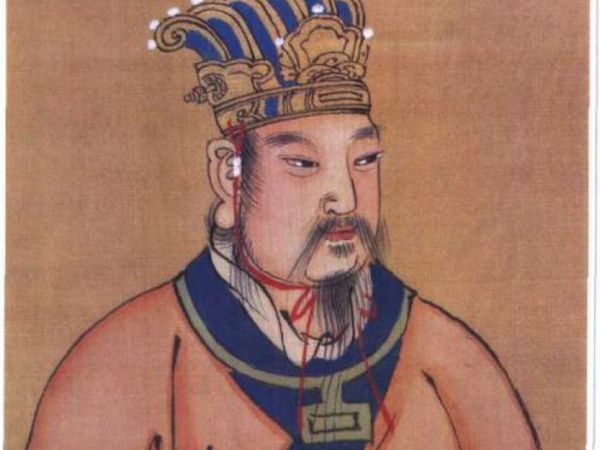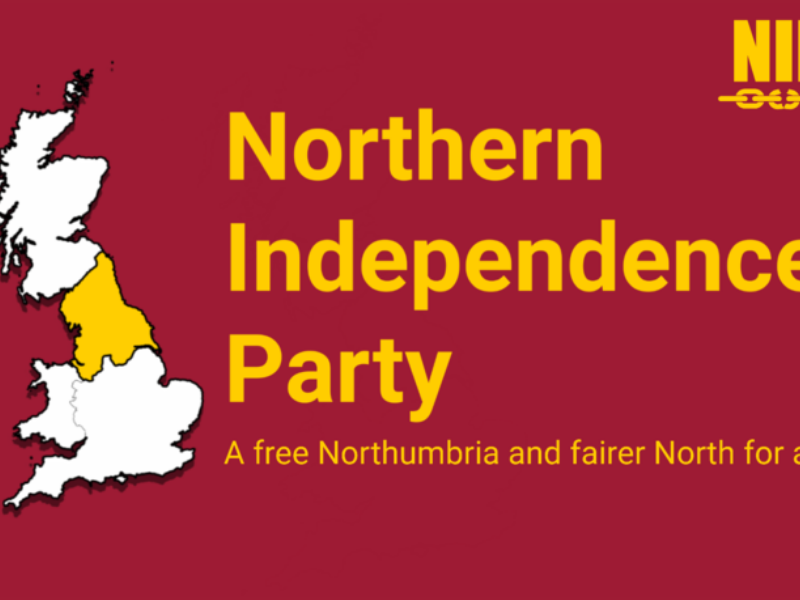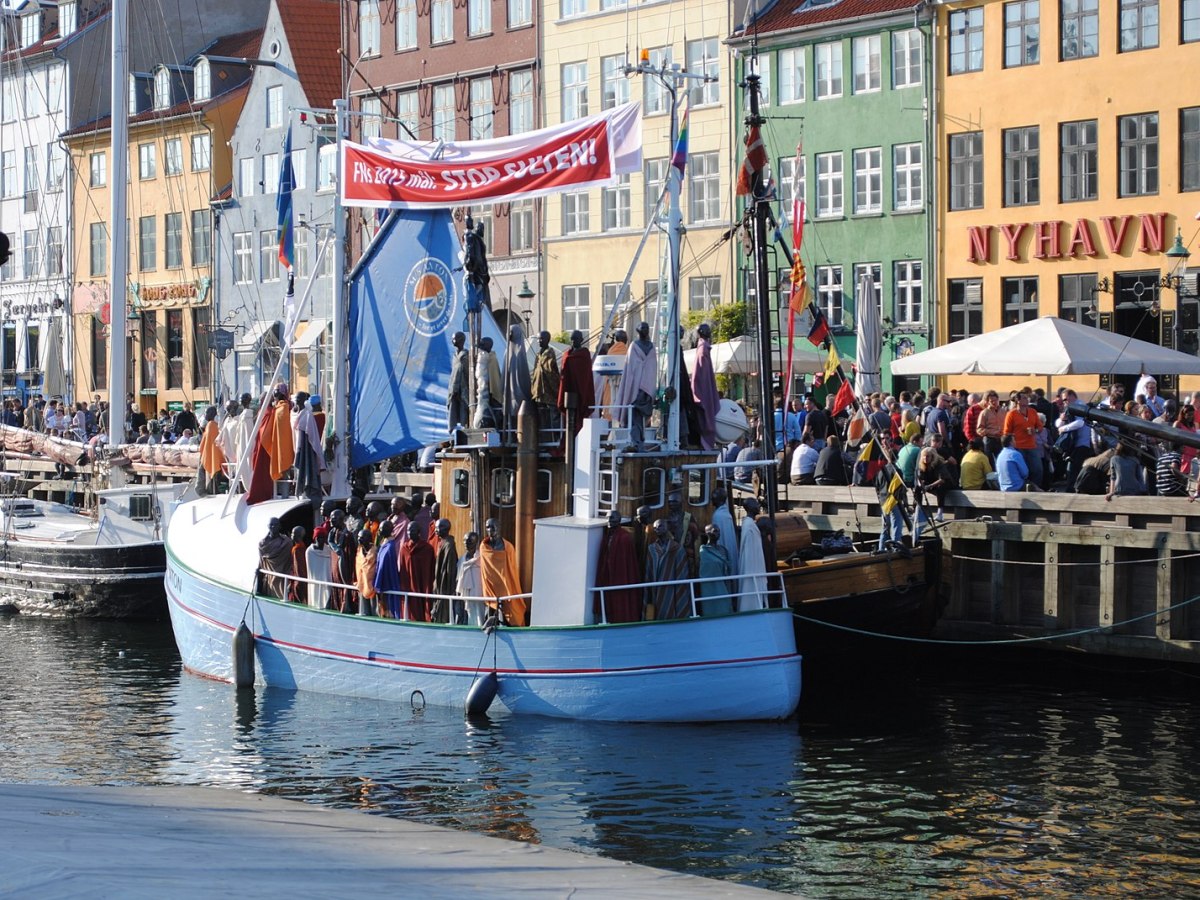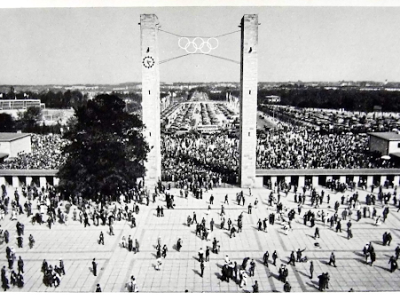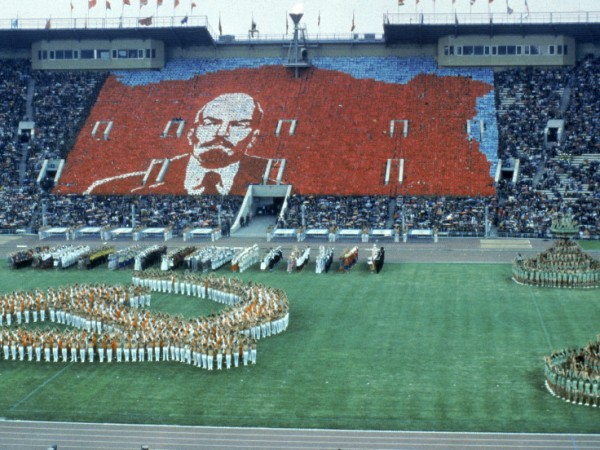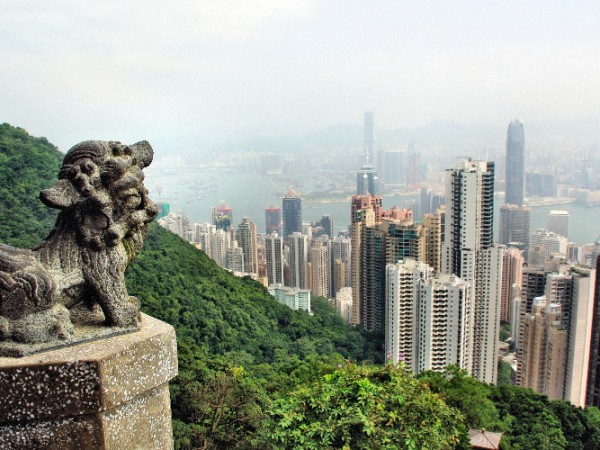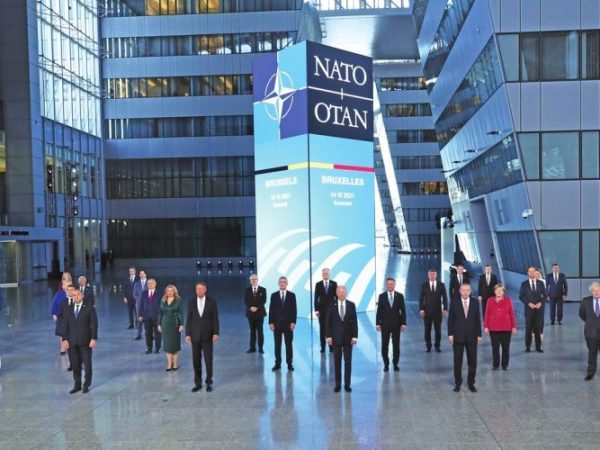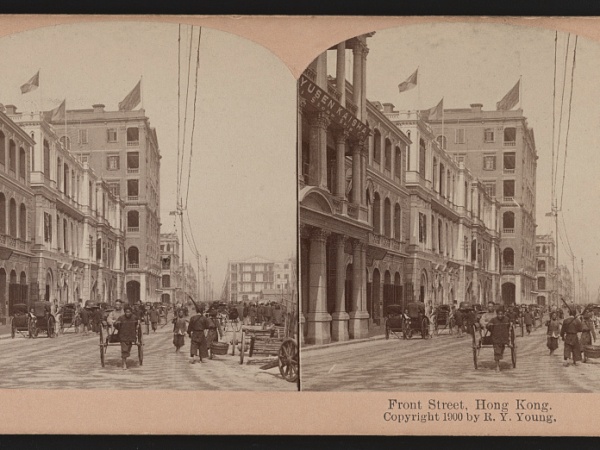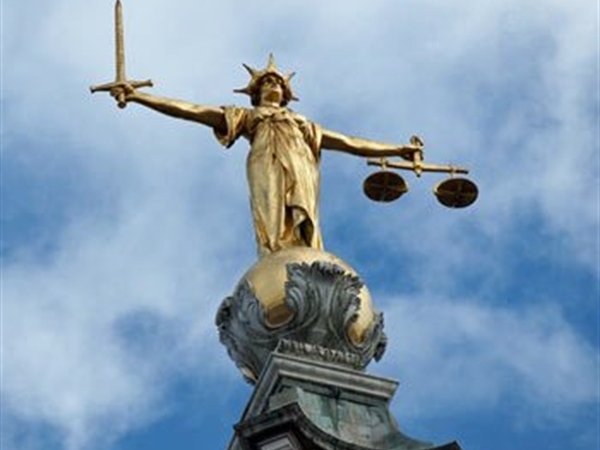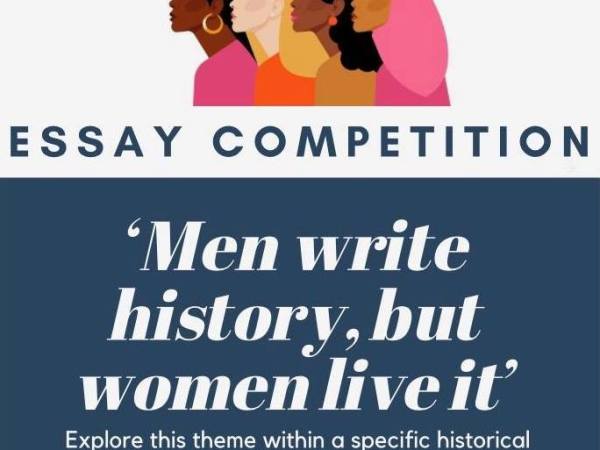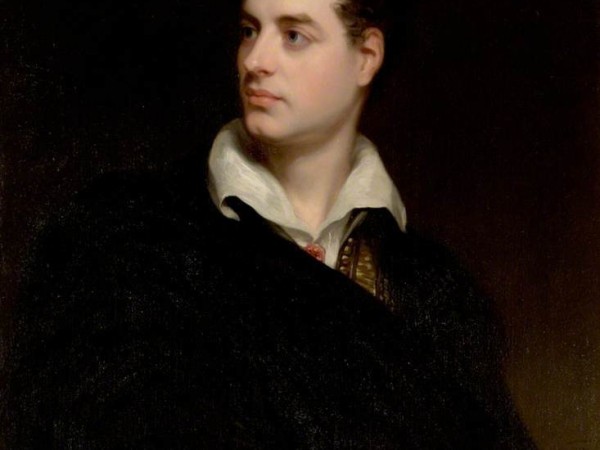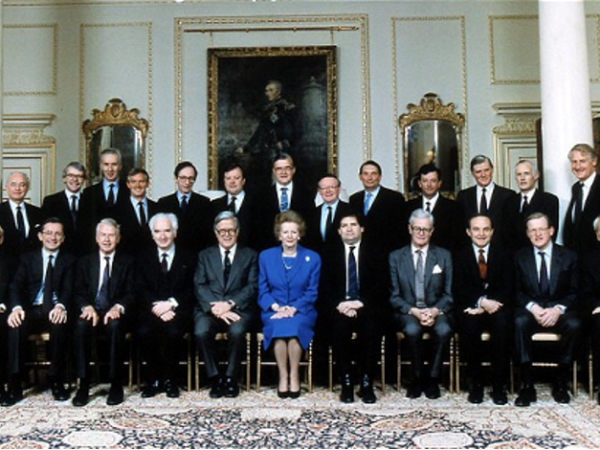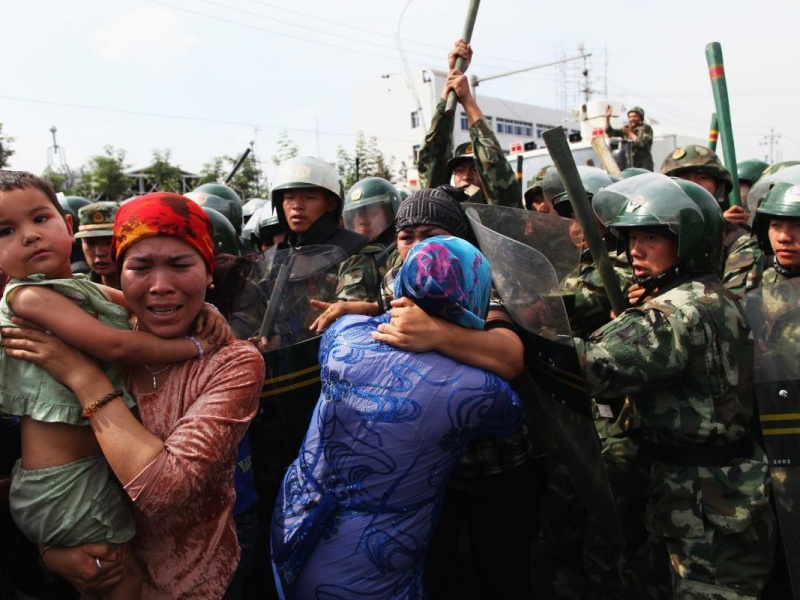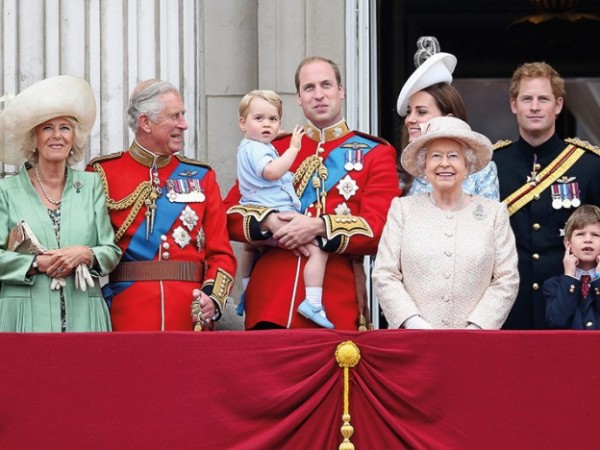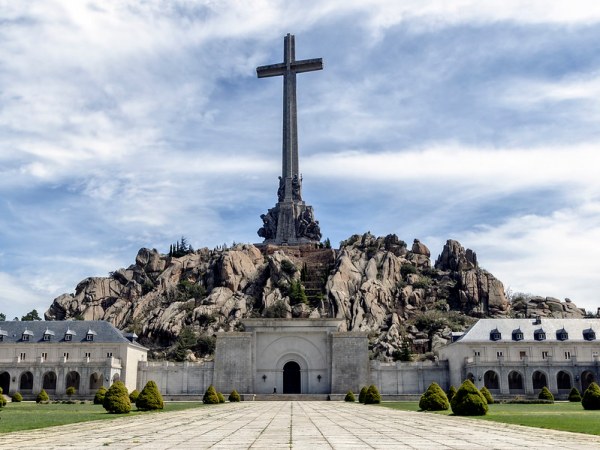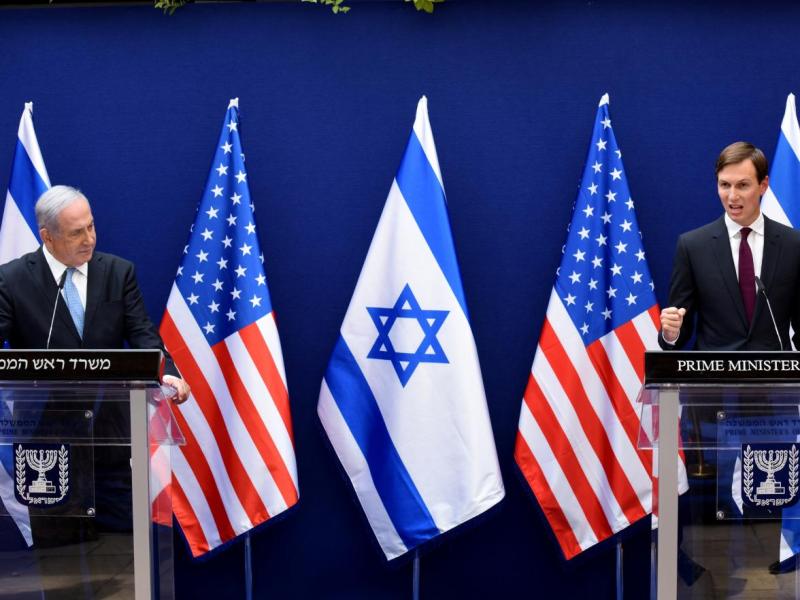Talking History in Politics is a space for constructive and respectful debate around conversations between the disciplines of history and politics. We encourage diversity of opinion through our open blog submission section which can be found on our ‘Submissions’ page and is monitored for selection by our editorial team. The articles featured present the views of the writer only; opinions expressed are not a reflection of the views and beliefs of the History in Politics Society.
How an overlooked conflict in the Vietnam War shaped the CIA
In north-central Indochina lies a sleepy nation, the land of a thousand elephants and white parasols – Laos. This idyllic Shangri La, with its verdant peaks to the north and the broad Mekong snaking lazily south, became the site of some of the CIA’s formative operations, becoming the testbed for clandestine activity, and shaping the…
Issue 6: Transitions
Read Issue Six, Transitions, below, or download a copy.
Anti-Abortion: The Architect of New Conservatism
(Note: This article was written before the midterm elections in the United States of America last November.) Roe v Wade’s reversal has put abortion at the heart of public debate. Progressive communities boil with rage. Meanwhile, the anti-abortion movement celebrates success while watching states sanction barbaric abortion bans. Today’s bitter divisions, however, didn’t always dominate…
‘In abstracto’ versus ‘in concreto’: Evaluating the position of the Stuart Monarch as evidenced by James’ deliverance to the Parliament (1610)
James’ deliverance before the Parliament in 1610, made in reserved defence of the doctrine of monarchical absolutism, is reflective of his intent to substantiate, through similitudes – scriptural, familial, and bodily, the abstract but commanding theory of Divine Right of Kings, while also, in a placative move, express loyalty to the fundamental law, as established…
Stirring more than just their drinks: How English coffeehouses, French salons and French cafés stimulated discussion and debate
English coffeehouses and French salons and cafés were not simply areas to consume a caffeinated beverage or two. They were key features of society from the mid-17th century. They were forums for discussion and lively debate, engaging numerous social classes and contributing to the spread of the culture and ideals of the Enlightenment. People from…
The Double-Edged Cutlass of the Grenada Revolution
Cuba was not the only Caribbean nation to experience a revolution and adopt communist ideologies in the twentieth century. The February Revolution of 1970 in southern neighbour Trinidad and Tobago proved the desire of many young Caribbeans to demolish colonial institutions and Euro-American capitalist power systems. It was Grenada’s revolution from 1979-1983, however, that truly…
Industries of exploitation: The ‘Radium Girls’ and the state of industrial working conditions today
In the early 1900s, radium became a prolific consumer product in the US. Used in a variety of products, including cosmetics and tonics, it was most famously worked into dials and clock faces. Now, despite its far-ranging consumption, radium had only been discovered in 1898 and knowledge of the element was limited. Safety guidelines, hence,…
Our Own COINTELPRO: The Black Britons under surveillance by the Black Power Desk
On the 8th of March 1971, a small group from the Citizens’ Commission to Investigate the FBI – an American political organisation – raided the FBI’s office in Media, Pennsylvania. During the raid, they burgled over 1,000 documents about Operation COINTELPRO. COINTELPRO was a series of illegal and covert projects conducted by the FBI against…
Ruth Handler: Remoulding the Legacy of Barbie’s Creator
In 1959, Ruth Handler debuted the Barbie fashion doll. Named after her daughter Barbara, Barbie was an instant success and became an iconic figure in popular culture. Despite having long been vilified by feminists such as Gloria Steinem, the doll is currently undergoing something of a revival. Barbie’s sales surged during the COVID lockdown, and…
‘Creating Awe and Fear in other Men’: King Henry V and the Gendered Legacies of Late Medieval Monarchs
This article examines Henry V’s reputation of exceptional masculinity, and how this has influenced his historical evaluation as a ruler. He is often portrayed as the archetypical medieval king, embodying the ideals of both the warrior and saintly monarch. These narratives often portray him as a successful king, through highlighting his military achievements and popularity.…
Henry VI and the decline of Royal Authority
Henry V was an immensely successful king. He was instrumental in English victories on the continent, as exemplified by his campaigns through northern France between 1415 and 1422. The success of Henry V’s French wars had consolidated his rule, and his depiction as a semi-legendary king by later Tudor historiography, whilst likely exaggerated, will have…
The national governments of the 1930s: short term success but long term failure
The first National Government of the 1930s was formed on the 24th of August 1931 by Ramsay Macdonald, under the backdrop of the Wall Street Crash in 1929, which led to the contraction of the global economy. As a result, Macdonald’s government immediately had to deal with severe economic difficulties such as rising unemployment, slowing…
How remnants of the imperial system in the Occupation era founded modern Japan’s repudiation of World War II atrocities
Emperor Hirohito with General Douglas MacArthur in the US Embassy in Tokyo, September 1945 (Credit: flickr) The shocking assassination of former Japanese Prime Minister Abe Shinzo drew renewed attention to his actions and ambitions regarding Japanese diplomacy and defence. He was credited with the creation of the Quad, a quasi-alliance designed to limit the threat…
Tracing the Origins of Uighur Oppression in Xinjiang
It is only in recent years that the headlines of the most prominent Western media publications have fully communicated the extent of China’s human rights violations in the region of Xinjiang. To be sure, the damning charges that have been brought against China reflect the increasingly authoritarian edge of Xi Jinping’s regime. However, (without being…
Does Tudor historical fiction handle the theme of politics well?
Enter any historical fiction section of a bookshop, and the Tudors are bound to pop out at you. They are a persistent part of the fabric of England’s past and are one of the public’s entry points to the past. As such, Tudor England is a traditional source of inspiration for historical fiction. However, once…
Port Hamilton: the story of a Korean port
When thinking about the Great Game between Russia and Britain major events such as the Durand Line, the Anglo-Afghan War, or the Russo-Turkish War may come to mind. However, away from the limelight of central Asia there was a small incident that occurred in the Far East that might have had more consequences than were…
History in Politics: The Russia-Ukraine Conflict
In the early hours of Thursday morning, Vladimir Putin announced in a televised broadcast that Russia would launch a “special military operation” in Ukraine. Addressing his nation, Putin said that his aim was to “demilitarise” the country. Soon after Putin’s speech, explosions were reported on the outskirts of Ukrainian cities, as well as in the…
Religion and Decline of the Absolutism – The Stuarts
1625 doesn’t sound like a significant year in history, but in fact it is the start of a century of rebellions and revolutions that shaped the political system we have in Britain today. This is because in1625 Charles I married a Catholic, kicking off a fight against absolutism in Britain. Religion wasn’t of course the…
China: an Old Giant Trapped in a Loop
China is familiar to westerners , but also unknown— the sleeping giant has awoken and has been appearing in thousands of headlines. Some say that it is the enemy of the western world, some say that its rise benefits the global economy—despite what has been said about it, the public may generally gain an impression…
Belated Black History Month: a Black conquistador and a Black Samurai
When we think about conquistadors, the first thought we would have is probably of a typical Spanish man with spikes daring to enter the new world. And when we imagine a samurai, we would imagine a Japanese man with his katana. While these general concepts would be the majority, even in such unexpected places we…
Acknowledging the Armenian Genocide: the Potential Impact of Brexit and Anglo-Turkish relations.
Only 33 countries worldwide (and the European Parliament) have formally acknowledged the Armenian Genocide despite the consensus among historians and other academics outside Turkey being that the actions of the Ottoman Empire (now the Republic of Turkey) were genocidal. The UN defined genocide in Article II of the Convention on the Prevention and Punishment of…
Could the North of England Become an Independent Country?
Much attention surrounding devolution and independence within the United Kingdom is focused on Scotland – the 2014 referendum combined with the growing support for the Scottish National Party in the country has established a resentment towards England due to its disregard for other countries within the Union. Northern Ireland and Wales have growing independence movements,…
Boris Lloyd George?
Thomas Hewitt argues that, despite his idolisation of Churchill, it is David Lloyd George who presents the most interesting parallels with our current prime minister.
The Dangers of Marriage for a Queen Regnant in the Sixteenth Century
Lauren Gannon discusses the complex world of alliances, agency, and power tied to marriage at this time.
The Forgotten Medici
Michaela Makusha discusses Duke Alessandro, the son of a freed slave of African descent.
How the UK Shaped Hong Kong’s Unique Democratic Sensitivity
Many look at Hong Kong’s politics now and wonder how Hong Kong got into such a mess. As some may know, in addition to it being a shopping and cuisine paradise, Hong Kong is a has a special political and legal status . Alongside Macau, Hong Kong is run under the principles of ‘one country,…
Home Ownership: is it the key in Britain’s inequality crisis?
Housing reform is necessary. That, as a statement, is perhaps one of the few things undisputed between the major parties in Westminster. Not enough affordable homes are accessible, leaving many within a rent trap, never quite managing to make it onto the housing ladder. Yet under the surface issue of getting the next generation onto…
Temporal over Spiritual Power in the Medieval Church? Part III: Dissent and the Call for Reform
The Great Papal Schism ultimately had devastating ramifications for both the papacy and the Catholic Church as a whole. Dissent was on the rise, as discontent with the actions and behaviour of the papacy, and the harm that it had inflicted upon the institution of the Church, began to cause wider problems. As the conflict…
Weaponising ‘safety’: Laws of displacement and the crisis faced by Syrian Refugees in Denmark
With the Danish government attempting to deport Syrian refugees, George R. Evans considers,: “is the host-state’s right to declare a refugee’s homeland ‘safe’ ever appropriate?”
Cornish Independence: dream or future political force?
Sophie Bodenham discusses the historical roots of the Cornish independence movement
Belarus: A Conflict of Histories
The summer of 2020 marked the beginning of the largest anti-government protests in Belarusian history. Fuelled by the clear rigging of the 2020 presidential election, these protests have rocked Alexander Lukashenko’s regime and terrified him with the possibility of his overthrow . And so, the President has cracked down heavily on these protestors, leading to…
Is Russia’s Foreign Agent Law Destroying Russian Journalism?
Life as a journalist or within the media in Russia has historically been far from easy. With Putin’s highly centralised authoritarian regime, any formation of media outlets are strictly limited. Over 20 journalists are estimated to have been murdered since 2000 for reporting on events or topics that in any way cross the blurred line…
When Bad History Leads to Bad Politics: ‘The Graveyard of Empires’
When a major political event happens, politicians and scholars usually cram desperately to fit the event into a simple framework: ideological, historical, or another type. Sometimes this is done to explain the events in a general pattern. Alternatively, it is done to fit the event into a set worldview (something often done by politicians). ‘The…
Let the Games Begin: Olympics, Sports and Supremacy in the Prewar World
This summer’s Olympic Games were for many a much-needed respite from a pandemic of which we have all grown weary. Tuning in to watch our athletes fighting it out has for many revived the sense of national pride that had taken something of a battering from the political whirlwind of the last few years. For…
Politics meets religion: The Ayodhya dispute
Miriam Shelley analyses the role of history in current Hindu-Islamic tensions in India
Peace Lines, Borders, and Brexit: Northern Ireland’s Dilemma
The Shankill is one of the main roads leading through Belfast and home to the city’s predominantly Protestant and Loyalist supporters– citizens who are in favour of the country remaining under British control. On the other side is Falls Road– the Republican Catholic community who are in favour of a United Ireland out of British…
The European Union— A Modern Idea?
Is the European Union simply the modern rendition of the age-old concept of a united Europe? Comparisons are often drawn between the modern EU and historical examples of entities which united or attempted to unite Europe, such as the Roman Empire, the Holy Roman Empire, and Napoleonic France. While it is true that many of…
Sport as Conflict
Sport fulfils a number of roles in society: it unifies people and nations behind a team, it provides children with role models, and often brings the international community together through tournaments. It could be said that it has another role— a less violent alternative to war. Nuclear deterrents, increased globalisation, effective international organisations, and a…
Temporal over Spiritual Power in the Medieval Church? Part II: The Avignon Papacy and the Great Papal Schism
Although the Catholic Church had asserted its dominance over Christian Europe in both spiritual and temporal matters during the thirteenth century, this was not a state that would last. Not all nations were content with papal supremacy in temporal affairs, with France in particular having long had a tempestuous relationship with the papacy, resenting its…
Bauhaus: Redefining Modern Art and Design in Weimar Germany
The Bauhaus art movement can be seen as defining not just a generation, but an entire century of modern art and design, influential since its formation and still pre-eminent today. Bauhaus style, of which has defining political roots, stemmed from the German art school of the same name, created in 1925 as a reactionary force…
Olga Romanov – the One Who Could Have Saved Russia’s Royal Family?
On 17 July 1918, the Royal Family of Russia: Tsar Nicholas II, Tsarina Alexandra, Grand Duchesses Olga, Tatiana, Maria, Anastasia and Tsarevich Alexei were rounded up, led downstairs to the basement and brutally murdered one by one by members of the Bolshevik Party. Their death was tragic, brutal and unnecessary. The Tsar’s abdication on 1…
Has the United States Fallen Victim to the Graveyard of Empires?
Recent events in Afghanistan have been tinged with a saddening inevitability. After twenty years, the United States are withdrawing from Afghanistan, and in concurrence the Afghan government they propped up has fallen to the Taliban. It seems that everything the US had set out to do in Afghanistan has been undone, and the US’ worldwide…
Disraeli’s Public Health Reforms: How to Improve Social Care Today.
The Coronavirus pandemic has laid bare the realities of a struggling care sector unable to cope with the demands of an ever-aging society. Despite Health Minister Sajid Javid’s full job title being the Secretary of State for Health and Social Services, a chronic imbalance between his two briefs has grown and has highlighted that action…
Temporal over Spiritual Power in the Medieval Church? Part I: Pope Innocent III and the Politicisation of Crusading
The Catholic Church was one of the most powerful entities in Christian Europe in the mid-late medieval period. Commanding the fealty of the majority of Europe, the Church was able to muster vast swathes of men to partake in the religious wars known as ‘The Crusades’. Traditionally, these Crusades had been used to unite men…
Hong Kong issues: Brief summary of how the UK ruled Hong Kong during the early 20th century
Hong Kong was a British colony from 1841 to 1997. How it was actually run is rarely discussed, especially nowadays. Let’s look at four main features of the British administration in the early 20th century (1900 – 1941). Executive-led government During the period, the whole government was mainly led by the executive branch, i.e. the…
“It’s not the Virgin Mary. It’s a painting.” Whiteness’ politicised grip on Iconography explored around Ofili’s depiction of the Holy Virgin Mary.
16 December 1999. New York City. With his hands as his weapon of choice, Dennis Heiner waltzes into the Brooklyn museum with vengeance, walking purposefully to the corner of the Sensation exhibit in which his victim awaits. Dipped in white paint smuggled inside in a hand sanitizer bottle, Heiner’s hand meets its target, the “blasphemous’…
Is ‘Ever-Closer Union’ The Right Path for the EU’s Survival?
Depending on whether you supported the UK leaving or remaining in the European Union, you might presume that the EU is either an undemocratic mess destined to fail, or an international organisation bound to grow and strengthen in a world where cooperation is key. The problem is, in the long-run, it really is impossible to…
NATO summit: How to Avoid a New Cold War?
The 28th NATO summit on Monday, 14 June 2021, saw the members of the Organization step up their tone regarding China and Russia. Both powers have demonstrated a certain aggressiveness in their foreign policies while also forming alliances that pose threats to the international alliance of 30 European and North American nations. The summit could…
Book Review: The Great Imperial Hangover, Samir Puri
Samir Puri’s The Great Imperial Hangover provides a fresh assessment of the oft over-simplified historical phenomenon of empire. In it, Puri pulls apart the ‘intersecting imperial legacies’ that provide the undercurrent of modern politics, and demonstrates that those legacies continue to manifest in the greatest issues of our times – from Blair and Bush’s rehashing…
The Legacy of Tokyo 1964
Throughout history, the Olympic games have been an apt window for nations and host cities to parade their culture on an international stage. In 2016, over 3.6 billion people from around the world tuned in to watch the games in Rio de Janeiro. The mass media frenzy which the games attract means that hosts have…
Work Environment and Culture
With workplace culture once again becoming important as people begin returning to the workplace, it is the perfect time to examine the differences between working in Asia and the UK. Despite inter-country disparities, work cultures in Asia share quite a few common traits. For one, employees in Asian countries such as India, China, Taiwan and…
Wuhan and China: the Pandemic and its Past
China’s history presents an interesting counterpoint to the West, revealing as much about our prejudices as another’s past. Often presented, from a Western perspective, as a place with continuous history until Western intervention in the form of the Opium Wars and Communist ideology, it is intriguing to see how China presents its own history in…
South Africa and Apartheid’s Enduring Legacy
Apartheid, literally defined as ‘apartness’ or ‘separateness’ in Afrikaans, refers to the policy of enforced racial segregation that defines the history of modern South Africa. Spanning from 1948 to 1994, when the National Party was in power and put into practice the culture of ‘baasskap’ or white supremacy, the national programme of apartheid forced black…
Recycling Political Establishments?
The announcement made by Abdelaziz Bouteflika in 2019 proclaiming his candidacy for a fifth presidential term ignited an ocean of furious Algerians opposing the monotonous and stagnant regime under his rule. Since Algeria’s independence in 1962, the nature of its political system under Bouteflika’s neo-patrimonial and authoritarian rule led to a disruption of the country’s…
How did the British rule Hong Kong?
Chan Stephanie Sheena explores the governance, tension, racism and reconciliation in Hong Kong in the years prior to the Japanese invasion of 1941
The Painful Struggle for Transparency in British Politics
Dominic Cummings’ breath-taking appearance at the joint session of the Health and Social Care Committee and the Technology Committee in the last week of May was one of the most revealing insights into the inner workings of Westminster on record. The combination of blunt personal remarks and detailed descriptions of the Government’s strategy posed a…
The Yorkshire Ripper Investigation: a Total Disaster, from A Feminist Perspective
In memory of Wilma McCann, Emily Jackson, Irene Richardson, Patricia Atkinson, Jayne McDonald, Jean Jordan, Yvonne Pearson, Helen Rytka, Vera Millward, Josephine Whitaker, Barbara Leach, Marguerite Walls, Jacqueline Hill. Even if you did not live in the 1980s, you have certainly heard of the Yorkshire Ripper. He was a serial killer in the UK active…
The Politics of the Past: How Divergent Interpretations of History Shape East Asian Diplomatic Relations in the Present
David Cameron’s refusal to remove his poppy for his 2010 visit to China was revealing of a stark contrast in the significance granted to history in politics between himself (and the British political establishment as a whole) and his hosts. Whilst history has often played the role of a footnote to contemporary politics in the…
10 Movies Showing the Evolution of Gender Equality in Hollywood
People say that films are sometimes depictions of the society and time in which they were made. This is especially applicable for society’s view of women. How particular films depict women really shows how people at that time embrace feminist ideas, and more generally, women. In this article, I am going to introduce 10 movies…
Book Review: The Prime Ministers by Steve Richards
Steve Richards’s writing is detailed, concise and accessible: perfect qualities mixed into his book on leadership from Harold Wilson to Boris Johnson. Defined as the “television age” of Prime Ministers, Richards looks at the qualities needed to lead a country in a job that is notorious for failure. It is ideal for anyone looking to…
Merkel’s Immigration Policy: A Failure?
Many highlight Angela Merkel’s policy in relation to the 2015 migrant crisis as the beginning of her downfall. In that year, Germany’s net migration figure was 1.1 million, just under double the previous year’s total. As Europe struggled to cope with refugees, Merkel made her country the continent’s biggest destination, despite the Dublin Agreement mandating…
Hong Kong’s National Security Law: Power Not To The People
You might have heard of the unrest in Hong Kong last year, stemming from the Government’s attempt to introduce an extradition agreement with Mainland China and culminating in a full-blown humanitarian crisis with the enactment of the National Security Law (NSL). Why was the extradition agreement met with such vigour? The proposed Bill would have…
Judging the Past: Can We Really Afford Not To?
University of Edinburgh historian Donald Bloxham has provided much food for thought in his recent article for the March edition of BBC History Magazine, entitled ‘Why History Must Take a Stance’. In it, he challenges the dogmatic insistence on neutrality that pervades the historical profession. Instead of feigning an unattainable neutrality, he argues, historians should…
The Environment Has No Ideology: Debating Which System Works Best is Inherently Flawed
It is often assumed that we in the ‘West’ are the arbiters of environmental policy, that we simply ‘care more’ than the rest of the world. ‘China’, for many, evokes images of flat-pack cities and rapid industrialisation synonymous with the stain left by humanity on the natural world. It is lazily viewed as an outlying…
Is It Time For An Elected Head of State?
Democracy and equality under the law have increasingly come to be seen as the gold-standard for structuring societies ever since the enlightenment. it may therefore appear odd to some that the United Kingdom, the ‘mother of parliamentary democracy’, is still reigned over by a monarchy. Stranger still is that despite the drastic decline in the…
The Future Unlocked?
What a strange year. April might seem like an even stranger time to reflect, one month after the anniversary of the first Coronavirus lockdown, but it also seems astute as the easing of lockdown starts to open up our futures. With pubs starting to open, vaccines being delivered, and being officially allowed back to university,…
General Secretary Putin— the Use of History by Russia’s Regime
Putin’s propaganda machine was laid bare for all to see last month with the return of Russian dissident Alexey Navalny, after recovering from nerve agent poisoning. The Kremlin initially refrained from commenting on the activist, however as his video detailing Putin’s Black Sea palace was released and protests in support of him erupted across Russia,…
Book Review: J. S. Mill’s ‘On Liberty’
John Stuart Mill’s ‘On Liberty’ is a classic statement of liberal values and an iconic text in the arena of moral and political thought. Published in 1859, it was originally conceived as a short essay upon which Mill and his wife, Harriet Taylor, fleshed out the liberal values and morality that still provide much of…
Diamonds, Best Friend or Mortal Enemy?
Diamonds symbolise love, wealth, and commitment to both the purchaser and the recipient, after all, they are known to be a woman’s best friend. Yet, the process of retrieving such a valuable commodity remains a battleground for those who work in the diamond mines. Alongside diamond production, the construction of worker exploitation, violence, and civil…
The Cost of Casual Scepticism to Human Rights
Modern aversion to human rights protection in the United Kingdom can be seen on the surface of British politics, from Theresa May’s indignation that she was unable to deport an illegal immigrant because he had a pet cat, to Nigel Farage’s demand that we “scrap the EU Human Rights Act”. The modern rallying cry for…
‘Men write history, but women live it.’: Essay Competition Winner
The arrangement and preservation of knowledge about the past is ultimately a question of power. History is a process that both legitimates and reflects gender relations. For most of human history this process has been controlled by men. The notion of ‘men write history, but women live it’ ascribes gender relations at both a literal…
Mary I: The First Queen of England and the Legacy of Female Leadership
Whilst the first Queen of England’s reign is largely overshadowed in favour of the other Tudors, namely her father Henry VIII and half-sister Elizabeth I, the historiographical interpretations of Mary I illuminate interesting notions associated with female leadership. Mary I was the first woman to ascend to the throne of England, as the succession of…
Seeing like Cassandra: a New Role for Literature in Political Risk Analysis?
Political conflicts and situations of crises in a multitude of forms continue to mark our present. Indeed, early crisis prevention is a question so pertinent to our times that it has prompted researchers at the University of Tübingen in Germany to explore an unusual method of conflict prediction: studying fictional literature of specific regions prone…
The Colosseum: A Political Tool
Arguably the most iconic arena in the world, Il Colosseo still stands at the very centre of modern Rome as a testament to both the glory and the cruelty of the Roman Empire. Constructed almost two thousand years ago, around six million people still flock to Italy’s capital to explore the history and grandeur of…
Who Won the Good Friday Agreement?
The Good Friday Agreement was signed in 1998, heralding a new era of peace after the decades of violence that characterised the Troubles. But who benefitted the most from the signing of the Agreement, and is the answer different today than it was twenty years ago? For unionists, represented most prominently by the Democratic Unionist…
Lord Byron, Celebrity
The idea of celebrity was conceived within the Romantic period, in part, through the prominent figure of Lord Byron. Following the French Revolution there was an increased focus on the individual and this was epitomized in the emerging figure of the celebrity. With the surge in publishing technology there was, according to historian Tom Mole,…
History as a Tool of Fascist Revolution
The past is a powerful weapon, one that in the wrong hands has the potential to tear asunder the present. Its utility is one that spans the political spectrum, and propagandists have long recognised its appeal. The most effective appropriation of the past as a tool of persuasion has undoubtedly been central to the exclusionary…
The Painted Word – Political Allegory in Early Modern Royal Portraiture
Portraits of sovereigns were always conceived with a political function in mind. Monarchs used their official portraits to cultivate an image of majesty, prestige, and royal authority, a key component in the broader construction of an inherently politicised royal public image. Whilst there is a discourse within the existing art-historical scholarship that seeks to depoliticise…
Margaret Thatcher: A Feminism Icon?
Thatcher’s lasting impact on twenty-first century feminism is widely debated. Whilst her actions have inspired future generations of ambitious young women in all professions, Thatcher was undoubtedly not a feminist. In fact, she actively disliked and directly discouraged feminist movements. Thus, Margaret Thatcher works as an apt example that a successful woman does not always…
Women in Terrorism: An Invisible Threat?
In 1849 the world met its first female doctor, Elizabeth Blackwell. Years later in 1903, the first woman to win a Nobel Prize, Marie Curie, did so for her outstanding contributions to Physics. How, with many more remarkable achievements behind women, does society continue to hold limited expectations of them? Why does the concept of…
Four “Non-feminist” Feminists in British history
When we think of feminism, we think of women holding strongly coloured flags of green, white and gold or green, white and purple in historical photos. We think of women and girls who spoke on the news demanding equal opportunities, more provision of pregnancy and abortion advice and the liberation of females in third world…
Does the Electoral College Serve the Democratic Process?
“It’s got to go,” asserted Democratic presidential candidate, Pete Buttigieg, when speaking of the electoral college in 2019 – reflecting a growing opposition to the constitutional process, which has been only heightened by the chaotic events of the past weeks. Rather than simply reiterating the same, prosaic arguments for the institution’s removal – the potential…
France and the Arab World: A Tale of Tension
Tensions are rising between France and the Arab world. The last few weeks has seen protests in Libya, Syria and the Gaza Strip, along with calls for a boycott of French goods in many Middle Eastern countries. This growing tension comes in the wake of the brutal, horrific murder of a French school teacher named…
Debates Take On a Different Meaning in the “Worst Year Ever”
The Trump-Biden debates are wrapped up, and for the “Worst Year Ever” they didn’t disappoint. The first debate was widely condemned as the “Worst Debate Ever”. Both candidates talked over each other, and it was near-impossible to understand them. Biden faced calls to boycott the other debates. Trump made this decision for him, falling ill…
Why Does History Help Explain Geo-Political Conflicts?
The construction of historical narratives and the pedagogic authority they hold has been vital in cultivating a sense of legitimacy with those engaged in violent practices in a geo-political conflict. In fact, these narratives are part of violence itself. Although media and education systems usually hold a significant grip on the dissemination of the teaching…
Arsinoe of Egypt: A Retelling of The Royal Rebel Against Rome
Do you know the story of Arsinoe, a member of the Ptolemaic dynasty, a rebel against the Romans and the sibling of the infamous Cleopatra? No? That is because history is written by the victors. Arsinoe has always been overshadowed by her older and more seductive sister in our historical records, but this article will…
What Will Happen Now Ruth Bader Ginsburg’s Dead?
You cannot understand the confirmation process of Amy Coney Barrett without understanding that of Robert Bork. Nominated by Ronald Reagan in 1987, Bork was a polarising figure, known for his disdain for the supposed liberal activism of the court. Ted Kennedy of Massachusetts, deeming Bork to be too radical for the court, turned away from…
Anne Boleyn: A Forgotten Victim of ‘Fake News’?
Anne Boleyn is an enigma. Contemporaries and historians alike have painted this infamous ‘beheaded’ second wife of Henry VIII as a ‘noble lady,’ ‘a whore,’ ‘an innocent victim,’ ‘a scandal of Christendom,’ and whilst the list of juxtaposing descriptions about the woman with ‘a long neck,’ ‘middling stature’ and ‘black and beautiful’ eyes could go…
‘You Can Get Rid of the Mines, But You Can’t Get Rid of the Miners’: Industrial Legacy and Contemporary Identity in Durham
Durham’s coal mines closed throughout the 1980s, despite dissent from local communities and mining unions. This was not an anomaly – under Conservative rule, mines were shut throughout the nation, yet these were largely concentrated in the North. As a result, a significant regional divide in unemployment, poverty, and general desolation was created. And yet,…
Perpetrator of Evil: Uighurs in China
‘Those who do not learn from history are doomed to repeat it’, George Santayana wrote these words forgetting that human nature contains a propensity for evil just as it does for good. Being aware of the evils of the past does not prevent evil deeds. China’s totalitarian socialist political system has continued its strangulation of…
Housing Reform: Not the Solution to a Prominent Problem
The government’s slogan of “Build, Build, Build”, coupled with radical reforms to the planning system, promises a utopia it will struggle to deliver. The reforms centre around deregulation, with the aim being to make it easier to build homes where people want to live. Housing Secretary Robert Jenrick wrote in the Telegraph of the reforms…
Gorillas, Galleries and Cage Fighting: How Visual Culture and Media Are Still Significant in Modern Politics
If a history student were to be asked about how visual culture and media can influence politics, they would surely think of examples such as British propaganda in the world wars, or the striking posters used in Nazi Germany. There is widespread agreement on the significant impact of this visual culture and media on people’s…
Debate: Monarchy, a Relic or Required?
Monarchy and its Political Pomp and Circumstance The Glorious Revolution of 1688 implemented the constitutional monarchy of the UK that we know today, effectively limiting the political role of the Crown to mere pomp and circumstance. Yet, to this day, certain superfluous political liberties have remained. In practice, the sovereign still gives weekly counsel to…
Will Britain’s History Ever Transcend Empire?
In recent months, racism in Britain has been widely discussed in the light of the killing of George Floyd, Breonna Taylor and countless other people worldwide. The Black Lives Matter movement has gained poignancy, with many supporters risking their lives to protest against systemic racism during the Covid-19 pandemic. When discussing this issue with peers,…
Do the US Presidential Candidates Meet the ‘American Dream’?
‘We hold these truths to be self-evident, that all men are created equal, that they are endowed by their Creator with certain unalienable Rights, that among these are Life, Liberty and the pursuit of Happiness.’ Declaration of Independence, 1776 The American Dream. It is a belief professed in America’s culture, literature, advertising and schools; the…
Historical Narratives: The Glorified and the Silenced Narratives of Spanish History
The bare, granite landscape of the Sierra de Guadarrama in Spain gives way to a 3,000-acre woodland that is home to the country’s most controversial monument. Soaring an impressive 150-metres high is a granite cross, raised dramatically above the basilica and valley. Beneath the Valle de los Caídos, or the Valley of the Fallen, are…
Does History Link to Geography?
Although separate disciplines, history and geography are tightly intertwined. While history attempts to examine human society, culture and experience through a temporal lense, geography does so through a spatial one. Physical geography and natural phenomena have undoubtedly influenced the course of history: the 1815 eruption of Mount Tambora, which caused massive global cooling, attests to…
Why Events in the Gulf Still Matter: Implications of Peace Between Israel and the UAE
There’s a joke that goes as follows: ‘…and on the eighth day, God created the Middle East, and said “let there be breaking news”’. In this constant stream of events it can be hard to distinguish between the important and irrelevant – but make no mistake, mutual recognition between Israel and the United Arab Emirates…
The Politics of Food: Modern Sumptuary Law?
The politicisation of food by Boris Johnson’s government has proved to be a highly controversial issue. Whilst the necessity of what has been described as an “obesity crackdown” has been supported by Public Health England, there has been backlash surrounding the government’s strategy. In particular, the lack of meaningful support for the most financially-disadvantaged have…
Do Belarus’ Protests Suggest a Chance for Change, like the 1989 Revolutions in Eastern Europe?
This article will use Russian spellings of Belarusian names for the sake of consistency. When comparing the situation in Belarus today to the revolutions of 1989, we have to note that each country experienced a different revolution. Estonians, Latvians and Lithuanians in the Baltics were trying to reverse the fifty-year long annexation of their nations…
Follow Us
Get new content delivered directly to your inbox. Simply enter your email address below.
Become a Contributor
Interested in contributing to our blog? Check out the Contact Us page for more information.






